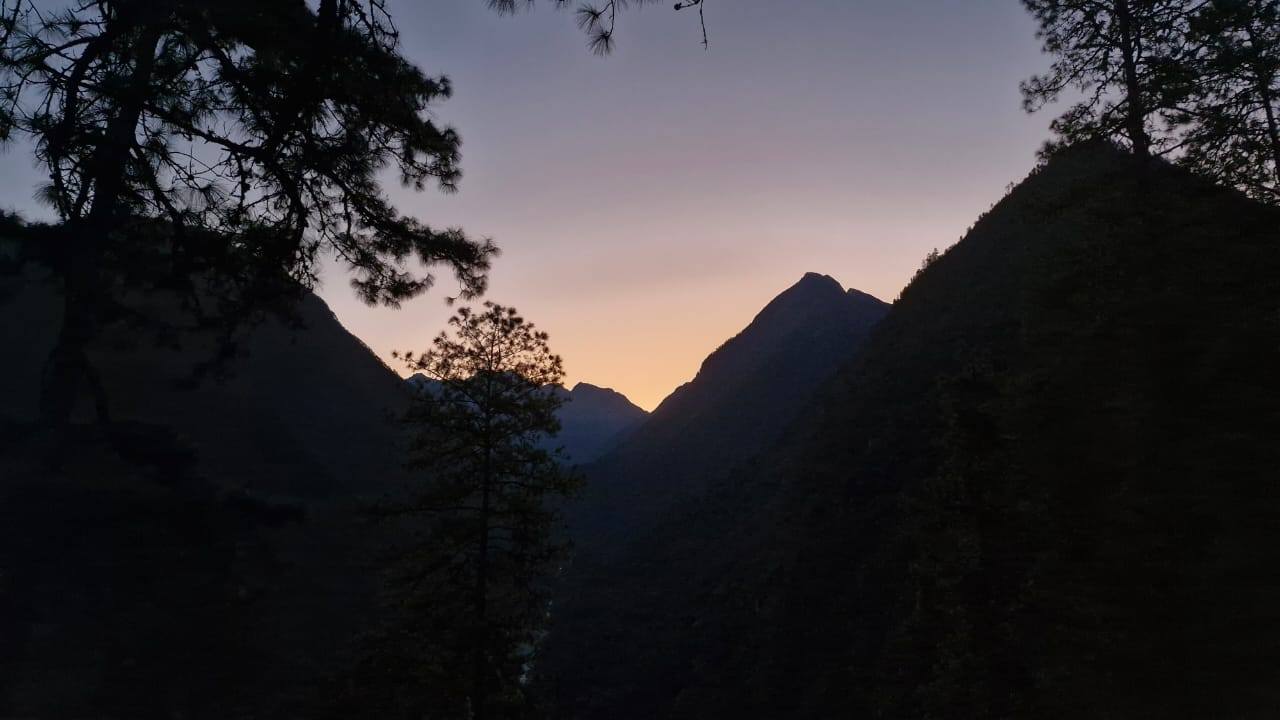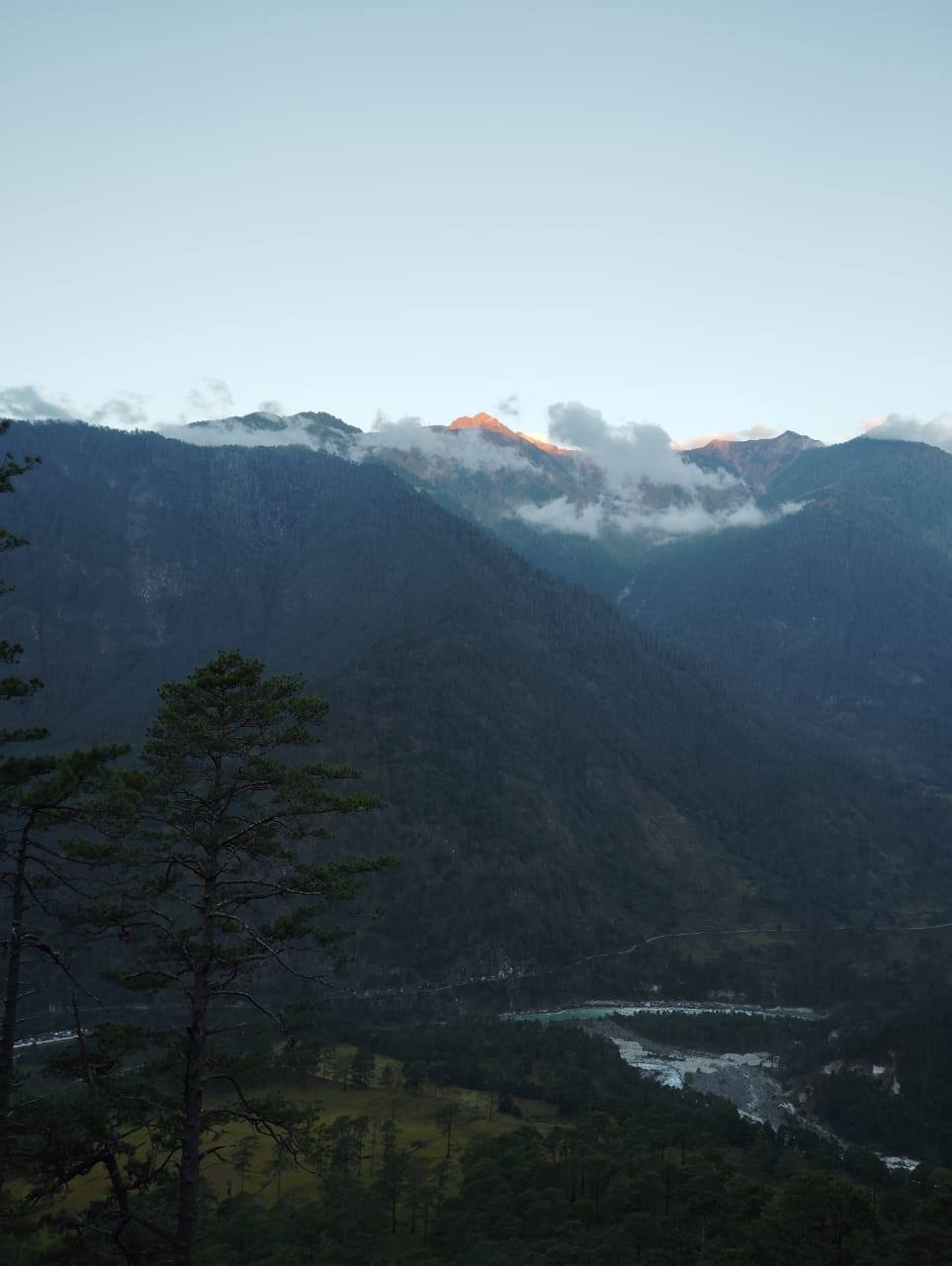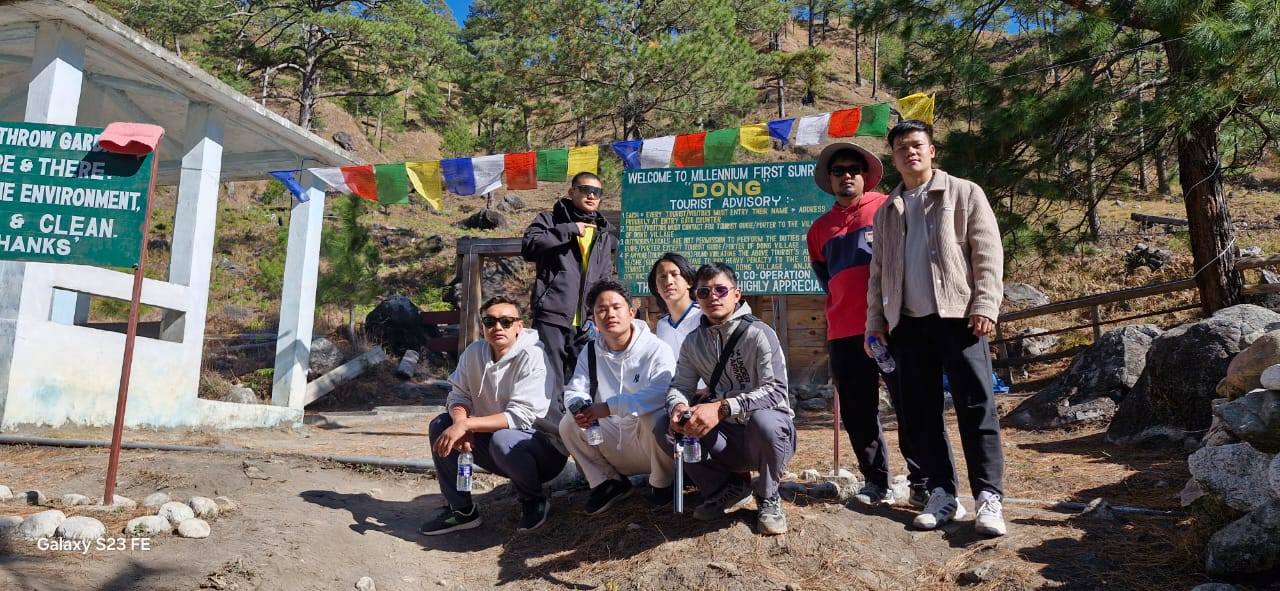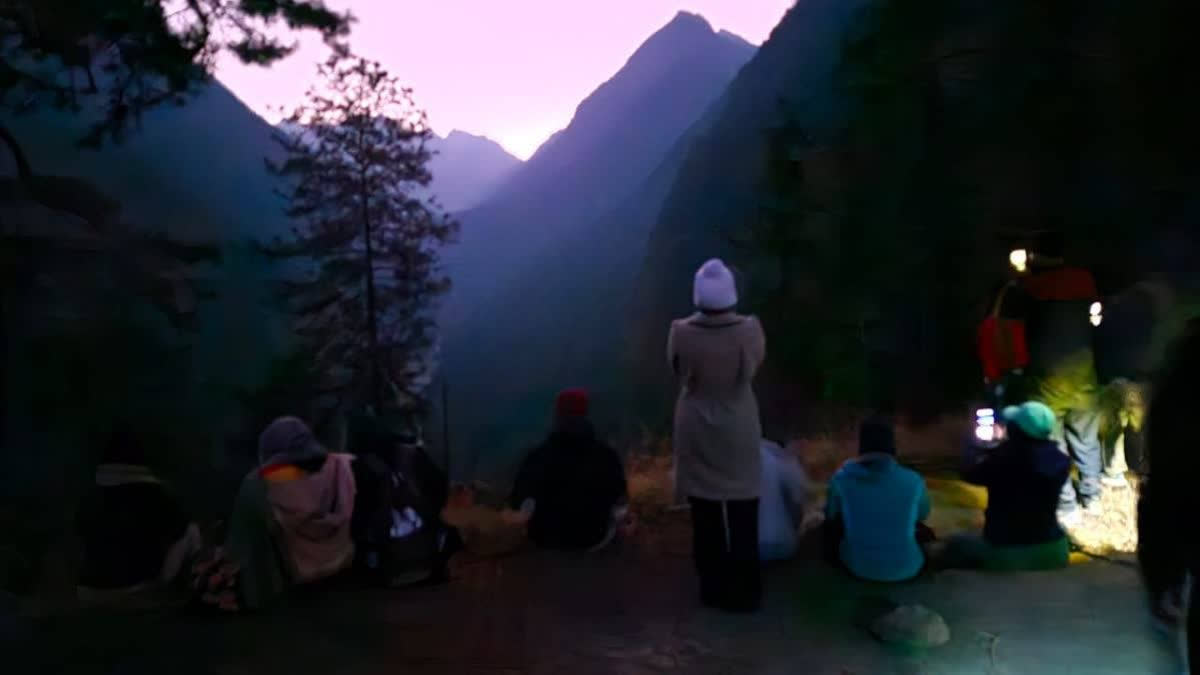Tezpur: As the year is drawing to an end, the nondescript Dong village in Arunachal Pradesh is bracing itself up to handle the additional rush on December 31. The nine families that live in this village located on the easternmost tip of India and the trijunction of India, China and Myanmar have readied themselves for receiving the guests, who are likely to throng the village on December 31 for one reason to enjoy the magnificent view of the earliest sunrise in the country.
Although hundreds of tourists visit Dong village most days of the month, the rush increases on December 31 to enjoy the magnificent sunrise. It is the unique geographical position and locational advantage of 1,240 metres elevation above mean sea level that makes Dong village receive the sun's first rays before anywhere else in India.
A part of Anjaw district in Arunachal Pradesh, Dong is mainly dominated by the Meyor community. The locals said that there are only nine Meyor families who live in the village of Dong, which has a population of approximately 50 people.
Dong village is located approximately 25 kms from Kaho and Kibithu villages, which are known as the easternmost villages of India, near the LAC with China.
The unique feat of receiving the first rays of the sun was discovered in 1999 and on January 1, 2,000, people from all over the world witnessed the sunrise in Dong. The village gained global attention for this event since then.

Known for mesmerising natural beauty Arunachal Pradesh is also known as the Dawn lit Mountains and one has to undertake trekking for three hours to reach a particular viewpoint to witness the sunrise.
"We have been receiving hundreds of visitors every year since 2000, who throng our village to witness the first sunrise. The rush of tourists has increased in the last two years. Today (December 28, 2024) we have received 90 visitors from different parts of the country, who came here to see the sunrise," said Kunchok Tsering, a local of Dong. Kunchok also leads the tourists in trekking to see the sunrise.

"Most of the villagers were engaged in farming only. But, since the arrival of tourists the people in our village are also earning from tourism these days, it is a good sign," he said.
It may be recalled that Arunachal Pradesh has the lowest density of population in India and most of the state is covered by dense forests and high mountains, which make transportation difficult and reduces accessibility. According to government statistics, Arunachal Pradesh covers an area of 83,743 sq km with a population of 1.5 million only. The reason behind such low density is the difficult living conditions of the state because of the forests in a larger area of Arunachal Pradesh.
"We take the tourists to show the sunrise to the viewpoint. There are a total of nine families in our village and every day is divided among each family, who works as a trekking guides and helps the tourists to reach the viewpoint to witness the sunrise. The minimum charge per person to see the sunrise is Rs 500, but we give a reduction when people come in groups," said Yonten Meyor.

Yonten said that tourists had to be ready by 12 am and the trekking starts at 2 am. "It takes around three hours to reach the viewpoint and it is a beautiful sight. Around 4.30 am one can see the sun blooming like a ball of fire, it gradually gets brighter everywhere," he said adding that it is a unique experience.
Jampin Bam, who hails from the Basar area in Arunachal Pradesh, arrived riding his bike, along with friends, to reach Dong and made the trek to see the sunrise on December 28, 2024. "It was magical. No one would understand the beauty unless he or she comes and experiences it," said Bam adding that they could see the sun lighting up the world around them around 5 am.
A local Gambu Meyor said that this year approximately 1,500 people have visited Dong this year to see the sunrise. "We are expecting more people in the next few days, particularly till December 31," Gambu said recalling his previous experience.
Explaining the geographical advantage of Dong, a geographer of a university in Assam while seeking anonymity said, "The earth is a rotating sphere and when it rotates, then half changes gradually. Earth rotates counterclockwise (west to east) therefore it appears that the sun rises in the east. Also due its the spherical nature of the earth the morning and evening sun have slanted angles. Due to elevation, mountain peaks get sunlight early when the sun rises over that location. So it is a combination of geographical location and elevation that the peak of Dong gets the first sunlight."



